Refuse to Choose!
Use All of Your Interests, Passions, and Hobbies to Create the Life and Career of Your Dreams
What's it about?
Refuse to Choose! is a guide for those struggling with having too many interests and passions. Sher introduces the concept of "Scanners," individuals with multiple passions and talents, and provides practical strategies to embrace their diverse interests without feeling overwhelmed or directionless. With exercises, tips, and real-life stories, this book empowers Scanners to navigate their unique path to fulfillment and success. Discover how to turn your broad range of interests into strengths and design a fulfilling life on your own terms.
About the Author
Barbara Sher is a bestselling author known for her empowering self-help books such as "Wishcraft" and "Refuse to Choose!" With a practical and motivational writing style, Sher encourages readers to pursue their dreams, overcome self-doubt, and embrace their unique strengths. She offers unique perspectives on creativity, productivity, and finding fulfillment in both personal and professional pursuits. Sher's work is a valuable resource for anyone seeking inspiration and guidance on how to live a more fulfilling life.
10 Key Ideas of Refuse to Choose!
Embrace Your Curiosities: Why Diving into Multiple Interests Enriches Your Life
Instead of focusing on a single career or hobby, explore various interests that excite you.
This approach not only keeps your mind active and engaged but also allows you to discover connections between different fields, potentially leading to innovative ideas and solutions.
Embracing diverse interests can make you more adaptable and versatile in the job market.
Learn DeeperSet aside dedicated time each week for exploration: Choose a day and time each week dedicated solely to exploring new interests. This could be anything from attending a workshop, watching a tutorial online, or simply reading about a topic that fascinates you.
Create a 'curiosity journal': Keep a notebook or digital document where you jot down any new interest or question that comes to mind. Periodically review your entries and select one or two to explore further.
Join communities with diverse interests: Look for online forums, local clubs, or social media groups that focus on a wide range of activities and interests. Engaging with a community can provide motivation, resources, and support as you explore.
Implement a 'project-based learning' approach: Pick a project that combines two or more of your interests in a creative way. For example, if you're interested in photography and history, you could start a project documenting historical landmarks in your city through photos.
Reflect and connect: Regularly take time to reflect on what you've learned from exploring various interests. Think about how these insights connect to each other and to your life goals. This reflection can lead to a deeper understanding and unexpected ideas.
- Example
A person interested in both cooking and technology starts a blog where they experiment with modern kitchen gadgets to recreate traditional recipes. This combines their love for culinary arts with their fascination for tech innovations.
- Example
An individual passionate about environmental conservation and filmmaking decides to create a documentary series highlighting local conservation efforts. This project not only allows them to explore their interests in filmmaking and the environment but also raises awareness about important issues.
Create a 'Scanner Daybook' to Capture Your Ideas and Projects
Keep a dedicated notebook or digital document where you jot down all your ideas, projects, and interests, no matter how fleeting or unrelated they seem.
This practice helps you organize your thoughts, track your progress, and revisit ideas you might have forgotten.
It serves as a tangible reminder of your creative potential and provides a pool of inspiration to draw from.
Learn DeeperChoose Your Medium Wisely: Whether you're more of a pen-and-paper person or prefer digital tools, select a medium for your Scanner Daybook that you enjoy using. This could be a beautifully bound notebook that inspires you to write or a digital app that syncs across your devices, making it easy to add thoughts on the go.
Make Regular Entries: Set aside a few minutes each day to jot down any new ideas, projects, or interests that have caught your attention. Don't worry about organizing these thoughts just yet; the goal is to capture them before they slip away.
Review and Organize Periodically: Once a week or month, depending on the volume of your entries, take some time to go through your Scanner Daybook. Highlight or tag entries that excite you the most and consider grouping related ideas together. This can help you identify patterns in your interests or potential projects you're ready to tackle.
Act on Your Ideas: Use your Scanner Daybook as a springboard for action. Choose an idea that stands out to you and take a small step towards exploring it further. This could be doing some research, starting a project, or even reaching out to someone who can help you bring your idea to life.
- Example
If you're into gardening, cooking, and writing, your Scanner Daybook might include a sketch of a garden layout, a recipe you want to try, and an outline for a blog post about your latest culinary experiment. Over time, you might notice a recurring theme of sustainable living, which could inspire a new project or area of exploration.
- Example
A tech enthusiast might use their digital Scanner Daybook to capture ideas for apps, thoughts on the latest gadgets, and notes from coding tutorials. Regular review sessions could reveal an interest in developing a specific type of app, leading to the creation of a detailed project plan and the start of development work.
Set Short-Term Goals to Explore Interests Without Commitment
Instead of setting long-term goals that may feel overwhelming or restrictive, focus on short-term objectives that allow you to explore an interest thoroughly but briefly.
This strategy reduces the pressure to commit to one path and keeps your explorations enjoyable and stress-free.
It also enables you to quickly move on if something doesn't hold your attention.
Learn DeeperIdentify Your Interests: Start by making a list of all the things you're curious about or have always wanted to try. Don't limit yourself—write down everything that comes to mind, no matter how big or small.
Set Short-Term Goals for Each Interest: For each interest on your list, set a short-term goal that allows you to explore it. This could be reading a book on the topic, taking a one-day workshop, or completing a small project related to it.
Schedule Time for Exploration: Look at your weekly schedule and find blocks of time you can dedicate to exploring your interests. Even an hour a week can make a big difference in allowing you to dive into something new.
Reflect on Your Experiences: After you've spent some time with an interest, take a moment to reflect on the experience. Did you enjoy it? Do you want to learn more, or are you ready to move on to something else? This reflection will guide your next steps.
Adjust Your Goals as Needed: If you find that an interest isn't as engaging as you thought, don't hesitate to adjust your goals. The beauty of short-term goals is that they're flexible and can be easily changed or abandoned.
- Example
If you've always been curious about photography, set a short-term goal to take a weekend photography class. After the class, spend a week experimenting with what you've learned by taking photos every day. At the end of the week, review your photos and decide if you want to pursue photography further.
- Example
For someone interested in gardening but unsure where to start, a short-term goal could be to plant a small herb garden. This project is manageable and offers quick results. After a month, evaluate whether the process of caring for plants was enjoyable and if you'd like to expand your gardening efforts.
Use Project-Based Learning to Deep Dive into New Subjects
Select a project that requires learning a new skill or subject matter.
This hands-on approach ensures that your learning is active and goal-oriented, making it easier to stay motivated and see tangible results.
Projects can range from building a piece of furniture to starting a blog on a topic you're curious about.
The key is to choose projects that excite you and align with your varied interests.
Learn DeeperIdentify Your Interests: Start by making a list of topics or skills you've always wanted to explore. This could be anything from photography, coding, gardening, to learning a new language. The key is to choose something that genuinely excites you.
Set a Specific Project Goal: Once you've chosen an interest, define a specific project related to it. For example, if you're interested in photography, your project could be to create a photo essay on local wildlife. Setting a clear goal gives your learning direction.
Break Down the Project into Manageable Steps: Large projects can be overwhelming, so break yours down into smaller, achievable tasks. This could involve outlining the steps you need to take, such as researching, purchasing equipment, practicing, and finally, executing the project.
Seek Out Resources: Look for resources that can help you learn the necessary skills for your project. This might include online courses, books, tutorials, or even local classes. Remember, the goal is to learn by doing, so focus on resources that encourage hands-on practice.
Schedule Regular Time for Your Project: Consistency is key when learning something new. Schedule regular time slots each week dedicated to your project. This helps ensure steady progress and keeps the project from being sidelined by daily life.
Reflect and Adjust: As you work on your project, take time to reflect on what you're learning and how you're applying it. Don't be afraid to adjust your approach if something isn't working. Learning is a process, and flexibility can enhance your experience.
- Example
Building a piece of furniture: If you're interested in woodworking, you could set a project goal to build a coffee table. You'd start by learning the basics of woodworking, selecting the right tools and materials, and then step-by-step, work towards constructing the table.
- Example
Starting a blog on a topic you're curious about: For those interested in writing and sharing knowledge, starting a blog on a subject like sustainable living could be a great project. This would involve researching the topic, learning how to set up and manage a blog, creating content, and engaging with readers.
Schedule Regular Review Sessions to Reflect on Your Progress
Set aside time weekly or monthly to review what you've learned, what you've accomplished, and what you want to explore next.
This reflection helps you recognize patterns in your interests, identify areas for further exploration, and make informed decisions about which projects or skills to pursue next.
It's also an opportunity to celebrate your achievements and progress.
Learn DeeperSet a Regular Schedule: Choose a specific day and time each week or month for your review sessions. Consistency is key, so it might be every Sunday evening or the last Friday of the month, whatever works best for you.
Create a Reflection Journal: Keep a dedicated notebook or digital document where you jot down your thoughts during these sessions. Note what you've learned, your accomplishments, and future interests. This will serve as a valuable resource to track your progress over time.
Identify Patterns and Interests: During your review, look for recurring themes or topics that excite you. This can help you pinpoint areas where you might want to dive deeper or skills you're particularly drawn to develop further.
Set Goals for the Next Period: Based on your reflection, set specific, achievable goals for the next week or month. These could relate to learning a new skill, advancing a project, or exploring a new interest.
Celebrate Your Achievements: Don't forget to acknowledge and celebrate what you've accomplished. Recognizing your progress, no matter how small, can be a significant motivational boost.
- Example
Imagine you're passionate about photography and coding but struggle to balance both. During your monthly review, you realize you've spent most of your time on coding projects. Reflecting on this, you decide to set a goal for the next month to participate in a photography challenge, balancing your interests more evenly.
- Example
You've been learning Spanish and guitar simultaneously. In your weekly reflections, you notice that while you enjoy both, you feel more accomplished when you make progress in Spanish. With this insight, you decide to prioritize Spanish lessons in the coming weeks, dedicating specific days to practice guitar less intensively.
Deeper knowledge. Personal growth. Unlocked.
Unlock this book's key ideas and 15M+ more. Learn with quick, impactful summaries.
Read Full SummarySign up and read for free!
Refuse to Choose! Summary: Common Questions
Experience Personalized Book Summaries, Today!
Discover a new way to gain knowledge, and save time.
Sign up for our 7-day trial now.
No Credit Card Needed

Similar Books
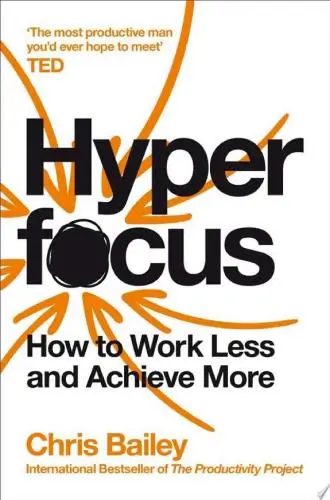
Hyperfocus
Chris Bailey
The Miracle Morning
Hal Elrod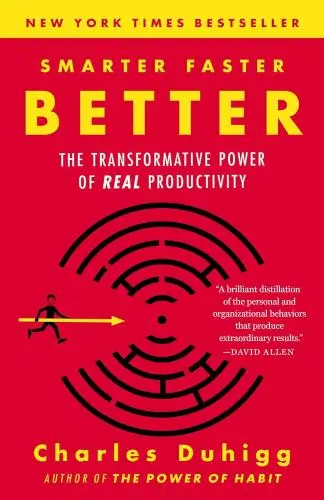
Smarter Faster Better
Charles Duhigg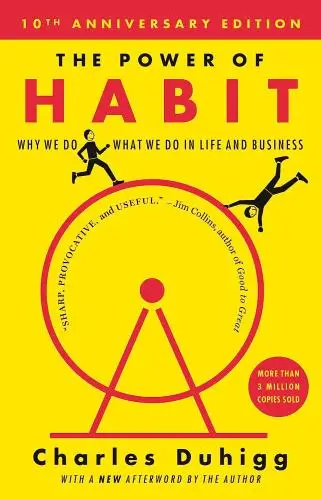
The Power of Habit
Charles Duhigg
Make Your Bed
William H. McRaven
The Checklist Manifesto
Atul Gawande
The 4-Hour Workweek
Timothy Ferriss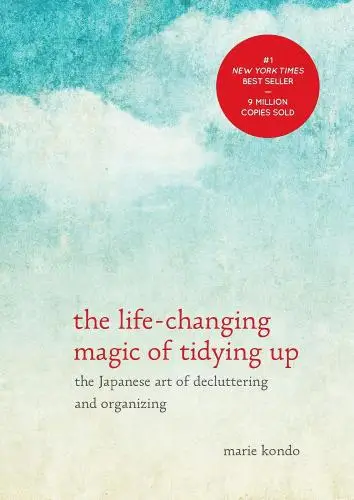
The Life-Changing Magic of Tidying Up
Marie Kondō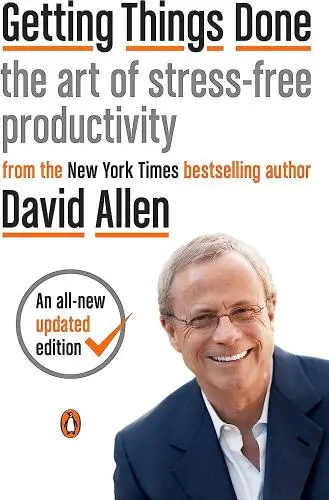
Getting Things Done
David Allen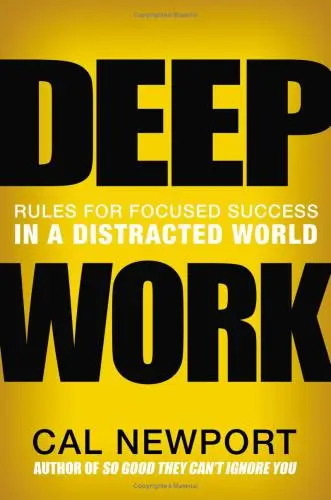
Deep Work
Cal NewportTrending Summaries

Peak
Anders Ericsson
Never Split the Difference
Chris Voss
Smart Brevity
Jim VandeHei
The Psychology of Money
Morgan Housel
The First 90 Days
Michael D. Watkins
Atomic Habits
James Clear
Thinking, Fast and Slow
Daniel Kahneman
The Body Keeps the Score
Bessel van der Kolk M.D.
The Power of Regret
Daniel H. Pink
The Compound Effect
Darren HardyNew Books

Comprehensive Casebook of Cognitive Therapy
Frank M. Dattilio
The White Night of St. Petersburg
Michel (Prince of Greece)
Demystifying Climate Models
Andrew Gettelman
The Hobbit
J.R.R. Tolkien
The Decision Book
Mikael Krogerus
The Decision Book: 50 Models for Strategic Thinking
Mikael Krogerus
Fichte
Johann Gottlieb Fichte
Do No Harm
Henry Marsh
This is Going to Hurt
Adam Kay

